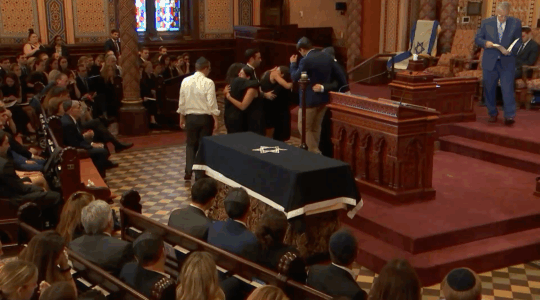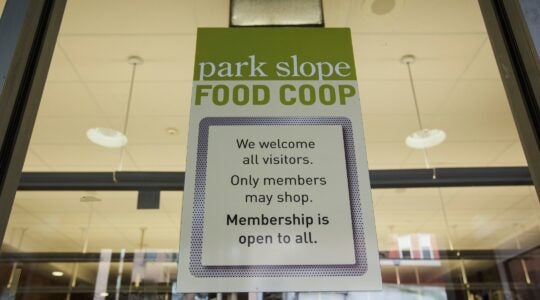JERUSALEM, Jan. 12 (JTA) — Israel’s High Court of Justice has asked the nation’s transportation minister to consider a compromise on Shabbat travel on a road that cuts through religious neighborhoods here. An expanded panel of seven justices Sunday suggested closing Bar Ilan Street during prayer times on the Sabbath. In exchange, the court said, another street would be open to link the main entrance to the city with the northern neighborhoods. Transportation Minister Yitzhak Levy is scheduled to give his decision in 10 days. Until then, the street will remain open on Shabbat. Shabbat traffic on Bar Ilan has led to a series of often-violent demonstrations. Fervently Orthodox Jews want the street closed for the Sabbath; secular Israelis view its closure as an infringement on their freedoms. The justices offered the proposal after secular groups complained that Levy would only partially meet the recommendations of a public committee formed to review the matter. The committee had been created at the recommendation of the court. Petitioner Lior Horev said Levy would close Bar Ilan during Sabbath prayer times, as the committee had recommended. But, according to Horev, Levy would not fulfill the committee’s other stipulation: that public transportation be provided on the Sabbath. Horev said he and other secular petitioners accepted the justices’ recommendation in principle. But they have additional conditions, Horev said. “We want to know that no other roads [in the capital] will be closed in the future,” Horev told Israel Radio. Horev also said the petitioners wanted assurances that no further violence would result. Over the weekend, some 150 fervently Orthodox Jews protested Sabbath travel. Two men were detained after being accused of damaging a police van. Representatives of the fervently Orthodox community said they would not accept the court’s compromise. “We will not agree to any Sabbath violations, on any road,” Yehuda Meshi Zahav told Israel Radio. “There is no [fervently Orthodox] Jew who will agree to open one road in exchange for closing another one.”
JTA has documented Jewish history in real-time for over a century. Keep our journalism strong by joining us in supporting independent, award-winning reporting.





